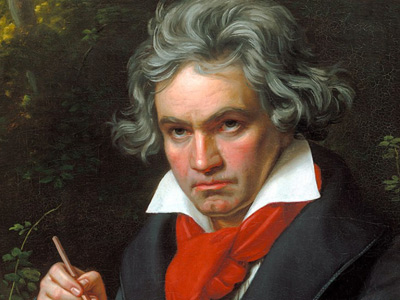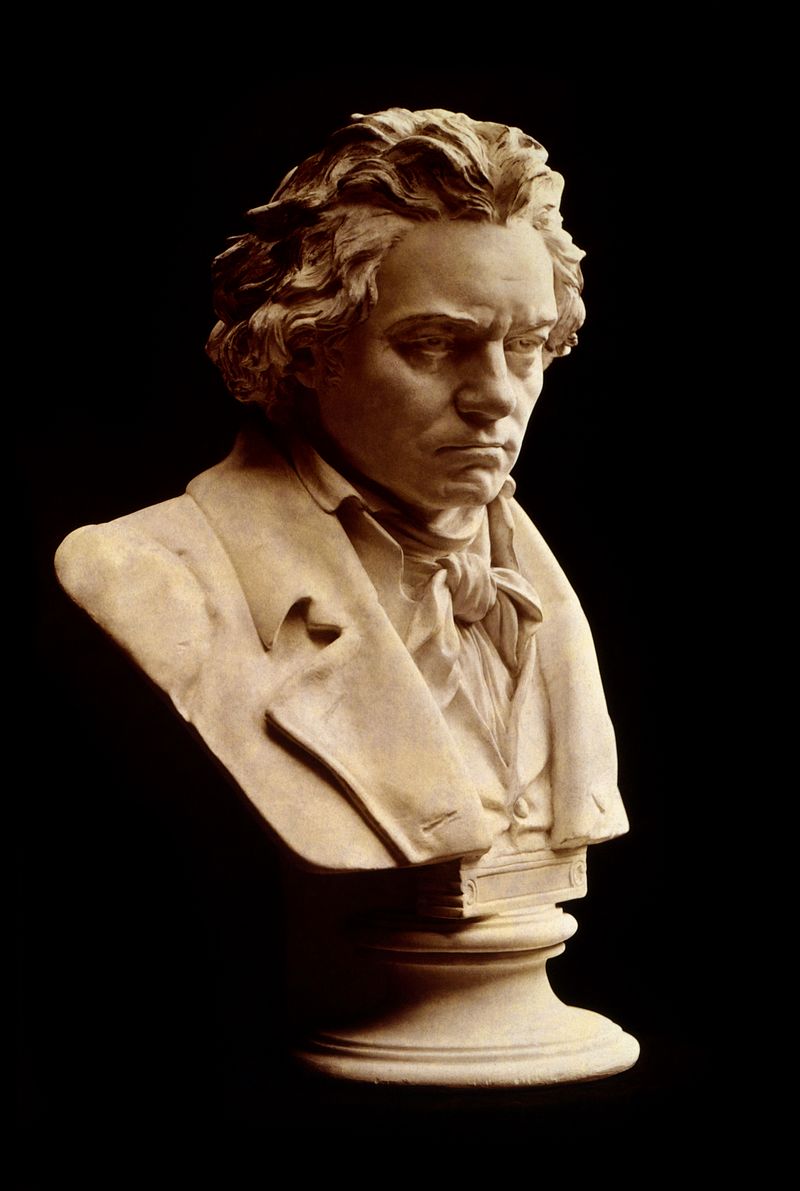Ludwig van Beethoven (1770-1827)
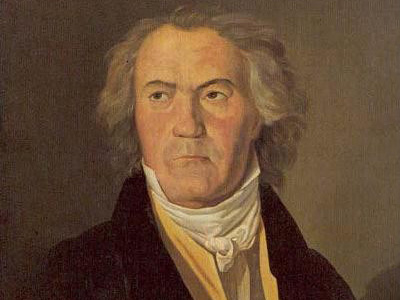
Middle Period
Beethoven's return to Vienna from Heiligenstadt was marked by a change in musical style, and is now designated as the start of his middle or "heroic" period. According to Carl Czerny, Beethoven said, "I am not satisfied with the work I have done so far. From now on I intend to take a new way." This "heroic" phase was characterised by a large number of original works composed on a grand scale. The first major work employing this new style was the Third Symphony in E flat, known as the Eroica. This work was longer and larger in scope than any previous symphony. When it premiered in early 1805 it received a mixed reception. Some listeners objected to its length or misunderstood its structure, while others viewed it as a masterpiece.
The "middle period" is sometimes associated with a "heroic" manner of composing, but the use of the term "heroic" has become increasingly controversial in Beethoven scholarship. The term is more frequently used as an alternative name for the middle period. The appropriateness of the term "heroic" to describe the whole middle period has been questioned as well: while some works, like the Third and Fifth Symphonies, are easy to describe as "heroic", many others, like his Symphony No. 6, Pastoral, are not.
Some of the middle period works extend the musical language Beethoven had inherited from Haydn and Mozart. The middle period work includes the Third through Eighth Symphonies, the Rasumovsky, Harp and Serioso string quartets, the Waldstein and Appassionata piano sonatas, Christ on the Mount of Olives, the opera Fidelio, the Violin Concerto and many other compositions. During this time Beethoven's income came from publishing his works, from performances of them, and from his patrons. His position at the Theater an der Wien was terminated when the theatre changed management in early 1804, and he was forced to move temporarily to the suburbs of Vienna with his friend Stephan von Breuning. This slowed work on Fidelio, his largest work to date, for a time. It was delayed again by the Austrian censor, and finally premiered in November 1805 to houses that were nearly empty because of the French First French Empire, officially the French Republic, then the French Empire after 1809, also known as Napoleonic France, was the empire ruled by Napoleon Bonaparte, who established French hegemony over much of continental Europe at the beginning of the 19th century. It lasted from 18 May 1804 to 11 April 1814 and again briefly from 20 March 1815 to 7 July 1815. A series of wars, known collectively as the Napoleonic Wars, extended French influence to much of Western Europe and into Poland. occupation of the city. In addition to being a financial failure, this version of Fidelio was also a critical failure, and Beethoven began revising it.
First French Empire, officially the French Republic, then the French Empire after 1809, also known as Napoleonic France, was the empire ruled by Napoleon Bonaparte, who established French hegemony over much of continental Europe at the beginning of the 19th century. It lasted from 18 May 1804 to 11 April 1814 and again briefly from 20 March 1815 to 7 July 1815. A series of wars, known collectively as the Napoleonic Wars, extended French influence to much of Western Europe and into Poland. occupation of the city. In addition to being a financial failure, this version of Fidelio was also a critical failure, and Beethoven began revising it.
During May 1809, when the attacking forces of Napoleon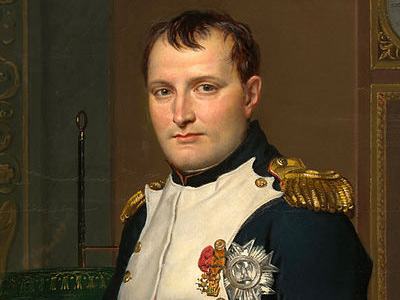 Napoleon Bonaparte (1769-1821), was a French military and political leader who rose to prominence during the French Revolution and led several successful campaigns during the French Revolutionary Wars. As Napoleon I, he was Emperor of the French from 1804 until 1814, and again in 1815. One of the greatest commanders in history, his wars and campaigns are studied at military schools worldwide. Napoleon Bonaparte » bombarded Vienna, according to Ferdinand Ries, Beethoven, very worried that the noise would destroy what remained of his hearing, hid in the basement of his brother's house, covering his ears with pillows.
Napoleon Bonaparte (1769-1821), was a French military and political leader who rose to prominence during the French Revolution and led several successful campaigns during the French Revolutionary Wars. As Napoleon I, he was Emperor of the French from 1804 until 1814, and again in 1815. One of the greatest commanders in history, his wars and campaigns are studied at military schools worldwide. Napoleon Bonaparte » bombarded Vienna, according to Ferdinand Ries, Beethoven, very worried that the noise would destroy what remained of his hearing, hid in the basement of his brother's house, covering his ears with pillows.
The work of the middle period established Beethoven as a master. In a review from 1810, he was enshrined by E. T. A. Hoffmann as one of the three great "Romantic" composers; Hoffman called Beethoven's Fifth Symphony "one of the most important works of the age."
HISTORY
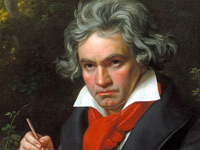
RESOURCES
This article uses material from the Wikipedia article "Ludwig van Beethoven (1770-1827)", which is released under the Creative Commons Attribution-Share-Alike License 3.0.
© Stories Preschool. All Rights Reserved.
